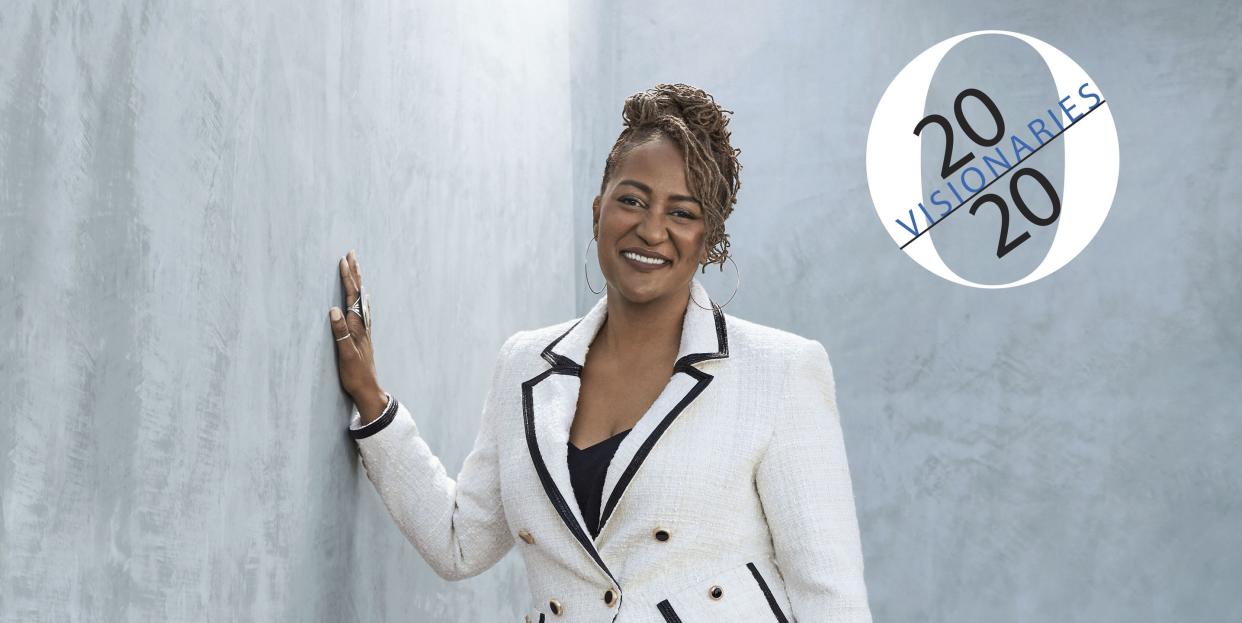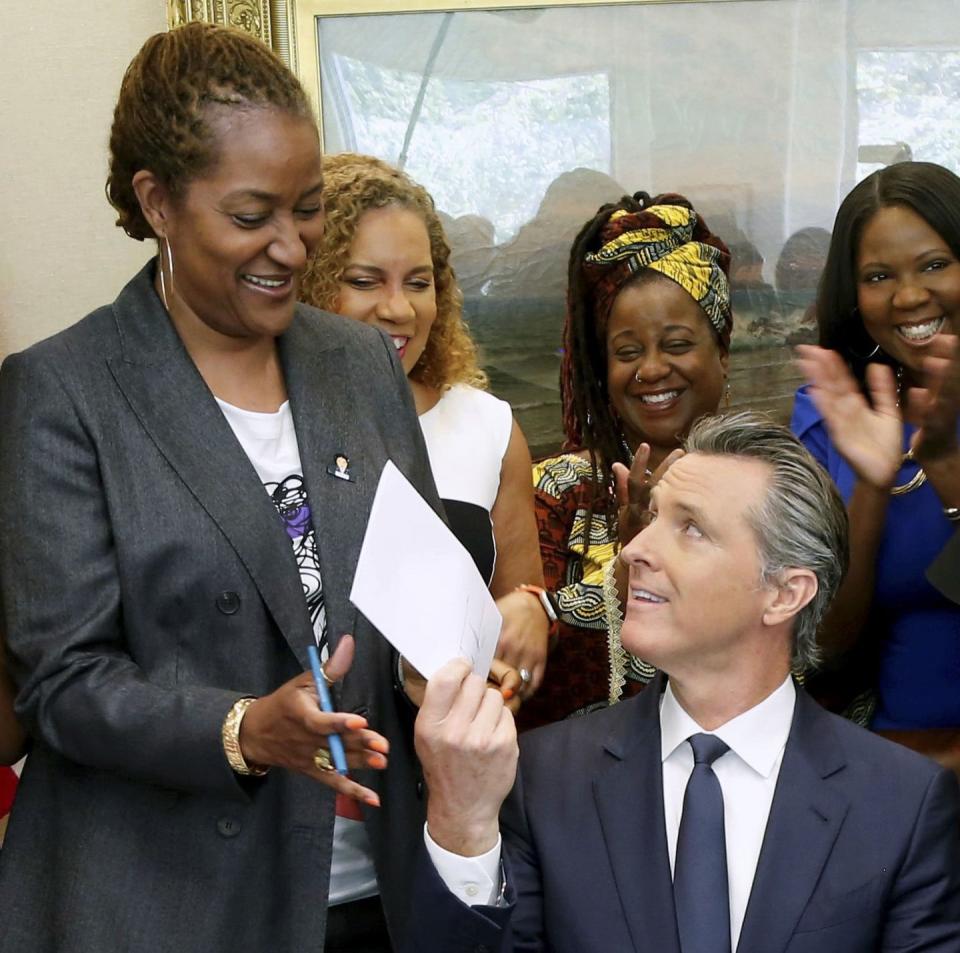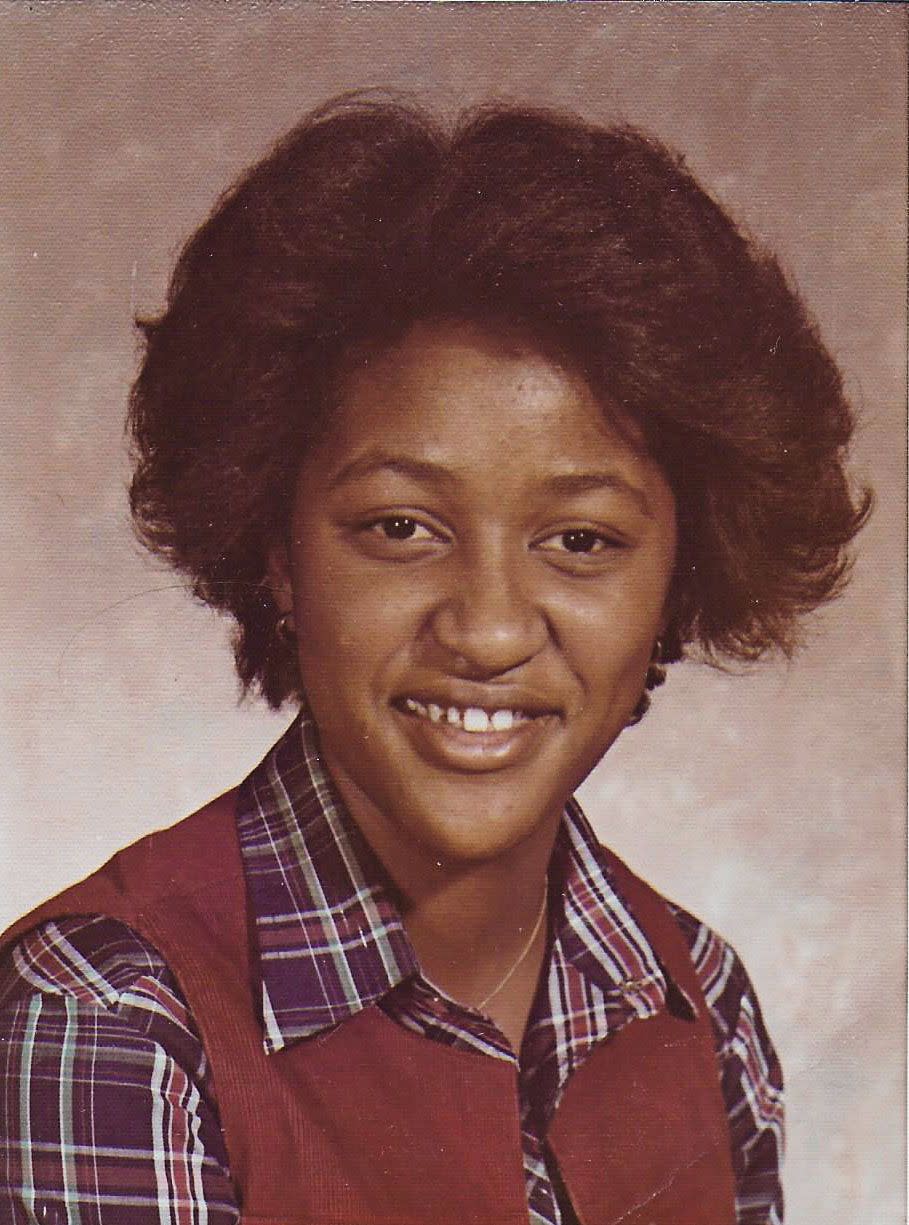This California State Senator Is Pushing To End Hair Discrimination

To celebrate 20 years of O, the Oprah Magazine, each month we're spotlighting Visionaries—remarkable people who could change the way we look at the world.
In July 2016, an ex-manager at a posh Manhattan hair salon filed a complaint with New York City's Human Rights Commission, alleging that while working at the salon, he'd been asked to implement a hair policy that seemed aimed at black employees. Three additional complaints were filed in the next two years against the same employer, including one in which a stylist and a co-owner were said to have disparaged black workers' dreadlocks and box braids as not befitting the salon's luxe vibe.
The ensuing investigation led to groundbreaking legal guidelines banning grooming policies that target hairstyles associated with black people. But as pioneering as these guidelines were, they applied only to New York city.
Enter California state senator Holly Mitchell, who in January 2019 introduced the CROWN (Creating a Respectful and Open Workplace for Natural Hair) Act, which was signed into law last summer. It took effect January 1—the first state law to ban discrimination based on natural hair or styles like locs, braids, and twists in workplaces and public schools.

For years, Mitchell had watched in frustration as hair-based discrimination went unpunished because no statutes existed on which to build precedent. Meanwhile people were losing jobs or facing other consequences for refusing to conform to Eurocentric definitions of what was "appropriate": An Alabama woman reported that a job offer was rescinded after she resisted cutting her locs, which a manager feared would "get messy." A sixth grader was suspended for wearing braided extensions. A high school wrestler was forced to cut his dreads in order to be allowed to compete in a match.
The results of a 2019 survey by the beauty brand Dove underscored that such anecdotal complaints were part of a larger patterns and confirmed that legions of black women have been penalized for or made uncomfortable about their hair; that employers tend to see traditional black hairstyles as "less professional"; and that blakc women are far more likely to be subject to formal grooming policies at work. Dove, under the umbrella of the CROWN Coalition, teamed up with Mitchell to cosponsor the CROWN Act.

When I spoke with her, Mitchell recalled that being able to wear braids through high school without backlash contributed to her self-confidence and future success. "If young girls aren't given the positive message that they are perfect just the way they are, how can they row up to be strong, secure women?" she asks.
For those who, like me, have been on the receiving end of hair-based prejudice, the significance of the CROWN Act can't be overstated. I was in my second year of law school, interviewing for a summer associate position, when out of the blue, a partner at the firm assured me that if I chose to work there, they wouldn't hold the way I wore my hair—in dreadlocks—against me. I went with a different firm. There, it turned out, I was the only black woman, and I frequently felt isolated. It seemed to me that my white peers got more support, and I couldn't help wondering whether that stemmed from uneasiness about the way I presented myself. But I didn't then have the means of processing—or the language—to explain why I felt belittled.
The CROWN Act provides that language. It establishes an understanding that, even when there isn't a direct threat to a student or an employee, the tacit or expressed message that physical qualities associated with blackness aren't suitable for polished settings has penetrated our cultural standards—and our psyches. The CROWN Act forces us to reckon with Eurocentric bias and the assumption of black inferiority, and it offers healing for black people who, in modifying themselves, even subconsciously, have internalized "less-than-ism." The way we wear out hair should be our choice; in protecting that choice by law, Senator Mitchell has ushered in a new era of hope.
20 Questions for Holly Mitchell:
What's your guilty pleasure? Napping on a beach while waves crash within earshot.
If you could send a note to yourself in 2030, what would it say? Your focused work on equity—in justice and access to affordable housing, health services, fair pay, and education—paid off. The CROWN Act was just the beginning in an effort to redefine beauty for all. The young women who now understand that their natural hair and how they choose to wear it will not limit their trajectory have blossomed into confident leaders. Your determination to stay true to yourself as an unapologetically black woman leader was definitely the right choice. You badass, you!
What's the one thing in life you're so happy you did? Choosing to parent. As an adoptive parent, I honor the courage it took for my son's birth mother to trust me. I've discovered over the past 19 years that parenthood is the ultimate act of selflessness.
Who's the one person who changed your life? My son.
What makes you cry? The loss of family, blood and otherwise, who loved me unconditionally and served as my advisers and truth tellers. Navigating life without their physical presence has been daunting.
What gives you hope? The next generation of leaders. Serving as legislator in residence at Mount St. Mary's University in Los Angeles affords me the opportunity to spend time with young women and hear them, learn from them, and believe in them.
What's the best mistake you ever made? After a chemical mishap in a salon 25 years ago, I had to cut off my hair—all of it! I cried the whole way home. I contemplated buying a wig until my mother told me that if I hid, I'd never take it off. That's when I realized my mental attitude and sense of self are more important than my appearance. When I showed up to work, everyone thought I'd cut it on purpose and told me how great I looked.
What keeps you up at night? Worry. Were the decisions I made today the correct ones? If not, how do I set things right?
What's your secret talent? I'm a dancing machine.
What's one thing you were wrong about? That I had plenty of time: time to save for retirement, time to find and nurture true love, time with my parents, time to re-lose that last 20 pounds. Alas, life really does go by fast.
What movie could you watch on an endless loop? Dr. Zhivago. The soundtrack. His eyes. The snow. What a love story.
What's your worst habit? Not exercising or flossing daily. I do love my WaterPik, though.
Cats or dogs? Dogs!
When is the last time you felt awe? When I stood under the Great Oak, a thousand-year-old tree known as Wi'áaşal on the ground of the Pechanga Band of Luiseño Indians in California's Temecula Valley.
If you could choose any magical power, what would it be?
What is your most prized possession? My collection of hundred-year-old photos of my maternal great-great-grandparents and paternal great-grandmother. They connect me to my roots and give me a sense of belonging.
What places or adventures are still on your bucket list? Bora Bora, with those thatched-roof huts on the water. A meeting in the Oval Office. An extended stay on the Continent.
What ignites your sense of injustice? All the isms: racism, classism, sexism...
What's the greatest gift we can give ourselves? Kindness.
What's the greatest gift we can give one another? Forgiveness.
For more ways to live your best life plus all things Oprah, sign up for our newsletter!

